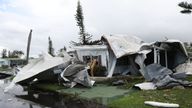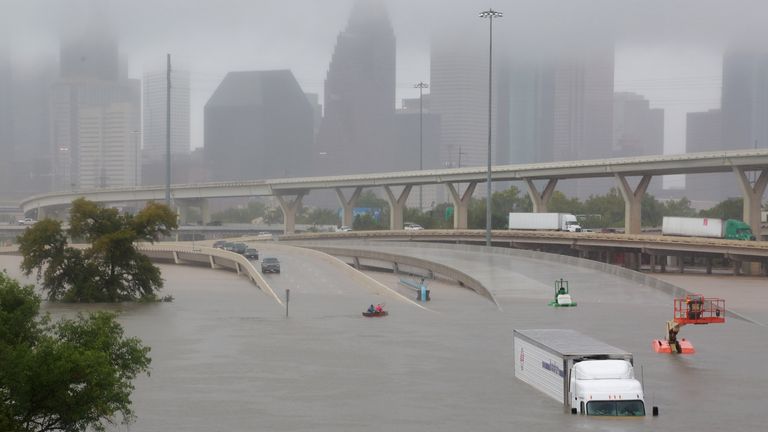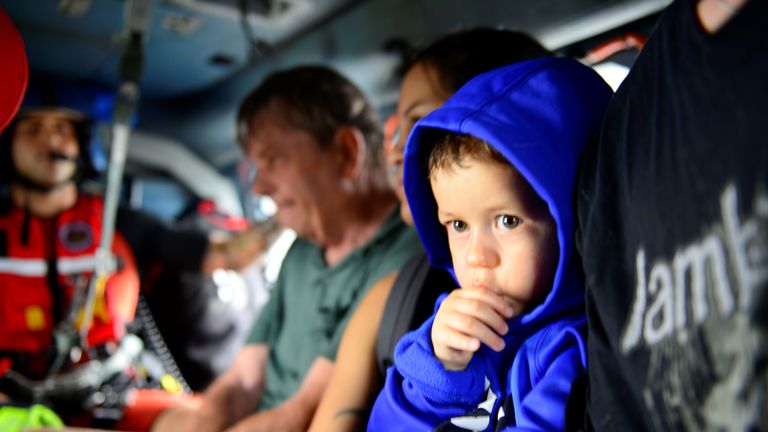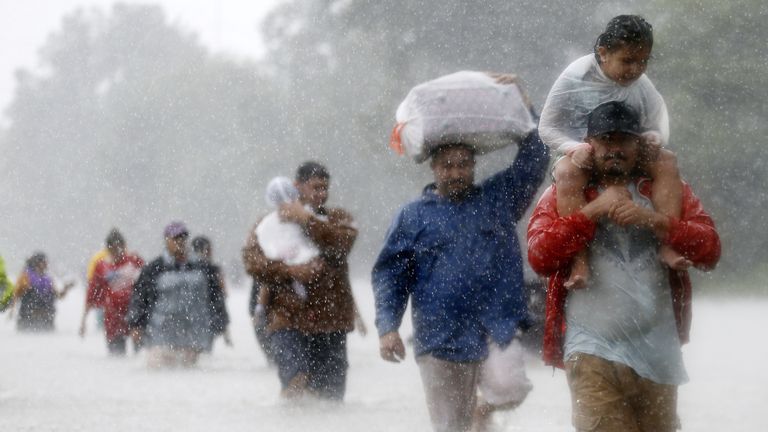Receding flood water reveals a brutal reality in Houston
As the flood water retreats from the streets of Houston, the residents who survived its fury are left to count the cost.
Sunday 3 September 2017 04:13, UK
The sun is shining is Houston, some of the water has receded, but the fury of Hurricane Harvey is brutally visible.
There are long lines of cars at petrol stations, businesses are trying to get back up and running.
But the clear light of day has exposed what the flood water obscured.
::
In Woodforest Chase, an apartment complex in the east of the city, the reality is brutal.
On the surface, it looks almost normal, but take a closer look and it's a picture of devastation.
Ceilings and walls have collapsed, chairs are hanging out of blasted windows and there are children's toys scattered across lawns.
Soon after we arrive, we see a woman sobbing, gasping for breath as she weeps.
Dominique Walker has just returned home and she's inconsolable.
She invites us in and walks us around her flooded home - she wants people to see just how dire the situation is for her and others here.
A children's bible is sodden on the floor and there's a strong stench everywhere.
She tells me she's lost everything and not just from the misfortune of enduring an historic storm.
"They've looted," she tells me.
"The police were outside.
"The windows were broken and they took all I have."
She carried her children to safety, escaping water that was up to their necks.
"I'm a single mother of two." she says, crying as she speaks.
"I've worked for this for 33 years."
She describes a harrowing scene where people were calling for children to swim to the edge, but their parents said they weren't able to. Some people clung onto trees and others to the fences, she says.
Dominique has no home insurance and no idea what happens next.
Across the road, Derek Vance takes me into the courtyard by his apartment.
The 29 year-old is 6ft 1in and says his height was what helped him save others.
"The water was rushing through at about 15 mph and I had to help them get on the roof."
He shows me the refrigerator, chair and plant pot he stacked up, to help him climb and carry the children and adults to safety.
He recalls hearing people scream and the pain of witnessing their cries fade.
He is worried more people may have died here and that they could still be trapped in their homes.
I ask him what his most vivid memory was.
"Seeing those babies floating," he says.
"I couldn't do anything."






